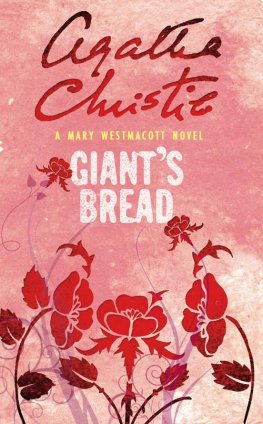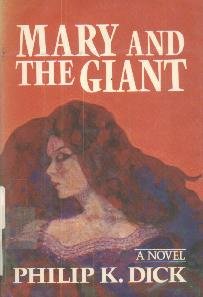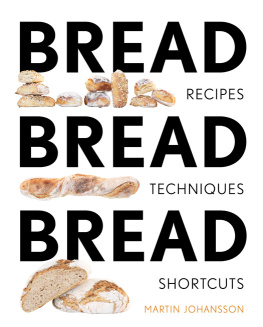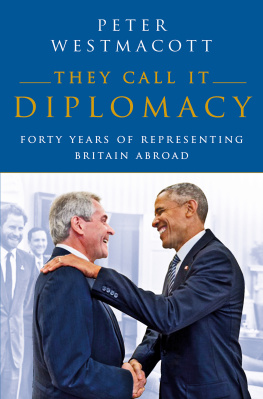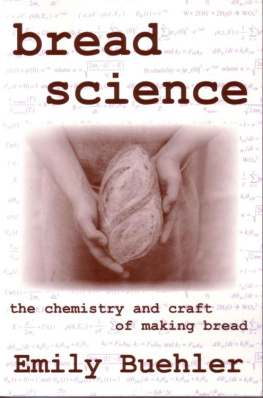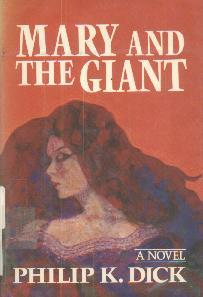Mary Westmacott - Giant's Bread
Here you can read online Mary Westmacott - Giant's Bread full text of the book (entire story) in english for free. Download pdf and epub, get meaning, cover and reviews about this ebook. City: London, year: 2013, publisher: HarperCollins Publishers, genre: History. Description of the work, (preface) as well as reviews are available. Best literature library LitArk.com created for fans of good reading and offers a wide selection of genres:
Romance novel
Science fiction
Adventure
Detective
Science
History
Home and family
Prose
Art
Politics
Computer
Non-fiction
Religion
Business
Children
Humor
Choose a favorite category and find really read worthwhile books. Enjoy immersion in the world of imagination, feel the emotions of the characters or learn something new for yourself, make an fascinating discovery.
- Book:Giant's Bread
- Author:
- Publisher:HarperCollins Publishers
- Genre:
- Year:2013
- City:London
- ISBN:9780007535002
- Rating:4 / 5
- Favourites:Add to favourites
- Your mark:
- 80
- 1
- 2
- 3
- 4
- 5
Giant's Bread: summary, description and annotation
We offer to read an annotation, description, summary or preface (depends on what the author of the book "Giant's Bread" wrote himself). If you haven't found the necessary information about the book — write in the comments, we will try to find it.
Giant's Bread — read online for free the complete book (whole text) full work
Below is the text of the book, divided by pages. System saving the place of the last page read, allows you to conveniently read the book "Giant's Bread" online for free, without having to search again every time where you left off. Put a bookmark, and you can go to the page where you finished reading at any time.
Font size:
Interval:
Bookmark:
Prologue
It was the opening night of Londons new National Opera House and consequently an occasion. Royalty was there. The Press were there. The fashionable were there in large quantities. Even the musical, by hook and by crook, had managed to be there mostly very high up in the final tier of seats under the roof.
The musical composition given was The Giant, a new work by a hitherto unknown composer, Boris Groen. In the interval after the first part of the performance, a listener might have collected the following scraps of conversation.
Quite divine, darling. They say its simply the the the latest!! Everything out of tune on purpose And you have to read Einstein in order to understand it Yes, dear, I shall tell everyone its too marvellous. But privately, it does make ones head ache!
Why cant they open a British Opera House with a decent British composer? All this Russian tomfoolery! Thus a peppery colonel.
Quite so, drawled his companion. But you see, there are no British composers. Sad, but there it is!
Nonsense dont tell me, sir. They just wont give them a chance thats what it is. Who is this fellow Levinne? A dirty foreign Jew. Thats all he is!
A man nearby, leaning against the wall, half concealed by a curtain, permitted himself to smile for he was Sebastian Levinne, sole owner of the National Opera House, familiarly known by the title of the Worlds Greatest Showman.
He was a big man, rather too well covered with flesh. His face was yellow and impassive, his eyes beady and black, two enormous ears stood out from his head and were the joy of caricaturists.
The surge of talk eddied past him
Decadent morbid neurotic childish
Those were critics.
Devastating too divine marvellous, my dear
Those were women.
The things nothing but a glorified revue. Amazing effects in the second part, I believe. Machinery, you know. This first part Stone is only a kind of introduction. They say old Levinne has simply gone all out over this. Never been anything like it. Musics pretty weird, isnt it? Bolshy idea, I believe. Noise orchestras, dont they call them?
Those were young men, more intelligent than the women, less prejudiced than the critics.
It wont catch on. A stunt, thath all. Yet, I dont know theres a feeling for this Cubist thtuff. Levinnes shrewd. Dropth money deliberately thometimes but getth it back. Cost ? The voices dropped, hushed themselves mysteriously as sums of money were mentioned.
Those were members of his own race. Sebastian Levinne smiled.
A bell rang slowly the crowd drifted and eddied back to their seats.
There was a wait, filled with chattering and laughter then the lights wavered and sank. The conductor mounted to his place. In front of him was an orchestra just six times as large as any Covent Garden orchestra and quite unlike an ordinary orchestra. There were strange instruments in it of shining metal like misshapen monsters, and in one corner an unaccustomed glitter of crystal. The conductors baton was stretched out then fell and immediately there was a low rhythmic beating as of hammers on anvils every now and then a beat was missed lost and then came floating back taking its place out of turn, jostling the others.
The curtain rose
At the back of a box on the second tier Sebastian Levinne stood and watched.
This was no opera, as commonly understood. It told no story, featured no individuals. Rather was it on the scale of a gigantic Russian ballet. It contained spectacular effects, strange and weird effects of lighting effects that were Levinnes own inventions. His revues had for long been proclaimed as the last word in sheer spectacular sensation. Into this, more artist than producer, he had put the whole force of his imagination and experience.
The prologue had represented Stone Mans infancy.
This the body of the work was a supreme pageant of machinery fantastic, almost awful. Power houses, dynamos, factory chimneys, cranes, all merging and flowing. And men armies of men with Cubist robot faces defiling in patterns.
The music swelled and eddied a deep sonorous clamour came from the new strangely shaped metal instruments. A queer high sweet note sounded above it all like the ringing of innumerable glasses
There was an Episode of Skyscrapers New York seen upside down as from a circling aeroplane in the early dawn of morning. And the strange inharmonious rhythm beat ever more insistently with increasing menacing monotony. It drew on through other episodes to its climax a giant seeming steel erection thousands of steel faced men welded together into a Giant Collective Man
The Epilogue followed immediately. There was no interval, the lights did not go up.
Only one side of the orchestra spoke. What was called in the new modern phrase the Glass.
Clarion ringing notes.
The curtain dissolved into mist the mist parted the sudden glare made one wish to shield ones eyes.
Ice nothing but ice great bergs and glaciers shining
And on the top immense pinnacle a little figure facing away from the audience towards the insufferable glare that represented the rising of the sun
The ridiculous puny figure of a man
The glare increased to the whiteness of magnesium. Hands went instinctively to eyes with a cry of pain.
The glass rang out high and sweet then crashed and broke literally broke into tinkling fragments.
The curtain dropped and the lights rose.
Sebastian Levinne with an impassive face received various congratulations and side hits.
Well, youve done it this time, Levinne. No half measures, eh?
A damned fine show, old man. Blessed if I know what its all about, though.
The Giant, eh? Thats true, we live in an age of machinery all right.
Oh, Mr Levinne, its simply too frightening for words! I shall dream of that horrid steel giant.
Machinery as the Giant that devours, eh? Not far wrong, Levinne. We want to get back to Nature. Whos Groen? A Russian?
Yes, whos Groen? Hes a genius whoever he is. The Bolshevists can boast theyve produced one composer at last.
Too bad, Levinne, youve gone Bolshy. Collective Man. Collective Music too.
Well, Levinne, good luck to you. Cant say I like this damned caterwauling they call music nowadays, but its a good show.
Almost last came a little old man, slightly bent, with one shoulder higher than the other. He said with a very distinct utterance:
Like to give me a drink, Sebastian?
Levinne nodded. This little old man was Carl Bowerman, the most distinguished of English musical critics. They went together to Levinnes own sanctum.
In Levinnes room they settled down in two armchairs. Levinne provided his guest with a whisky and soda. Then he looked across at him inquiringly. He was anxious for this mans verdict.
Well?
Bowerman did not reply for a minute or two. At last he said slowly:
I am an old man. There are things in which I take pleasure there are other things such as the music of today which do not give me pleasure. But all the same I know Genius when I meet it. There are a hundred charlatans a hundred breakers down of tradition who think that by doing so they have accomplished something wonderful. And there is the hundred and first a creator, a man who steps boldly into the future
He paused, then went on.
Yes, I know genius when I meet it. I may not like it but I recognize it. Groen, whoever he is, has genius The music of tomorrow
Again he paused, and again Levinne did not interrupt, but waited.
I dont know whether your venture will succeed or fail. I think succeed but that will be mainly because of your personality. You have the art of forcing the public to accept what you want them to accept. You have a talent for success. Youve made a mystery about Groen part of your press campaign, I suppose.
Font size:
Interval:
Bookmark:
Similar books «Giant's Bread»
Look at similar books to Giant's Bread. We have selected literature similar in name and meaning in the hope of providing readers with more options to find new, interesting, not yet read works.
Discussion, reviews of the book Giant's Bread and just readers' own opinions. Leave your comments, write what you think about the work, its meaning or the main characters. Specify what exactly you liked and what you didn't like, and why you think so.

